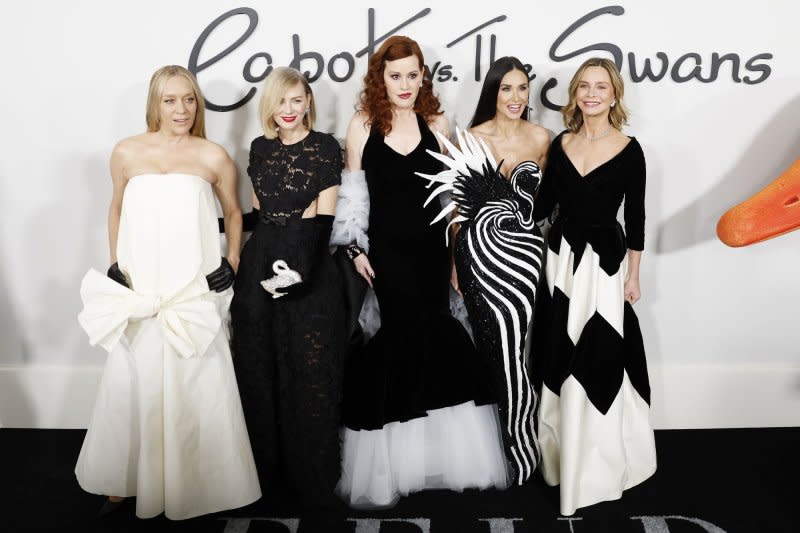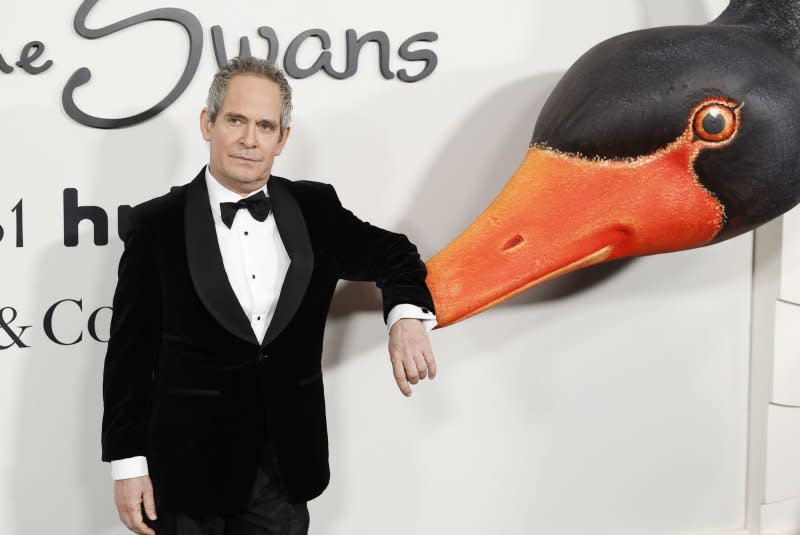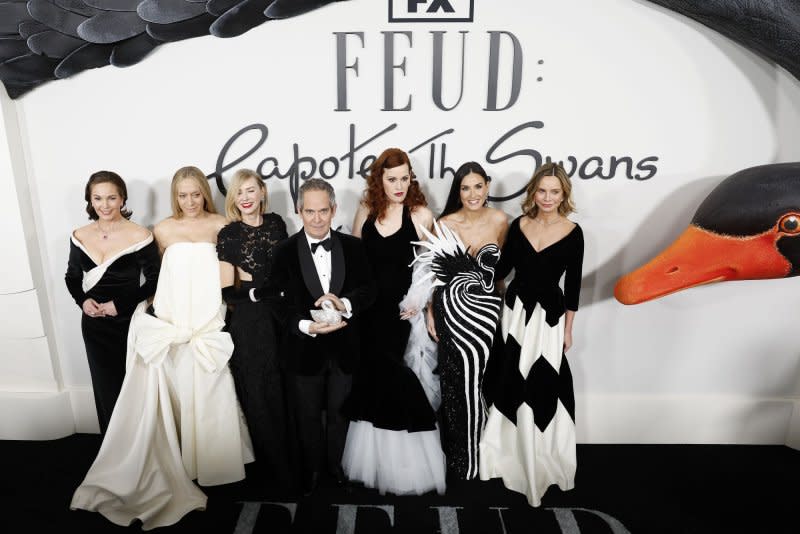'Feud' star Molly Ringwald: Swans treated Truman Capote like court jester

NEW YORK, Jan. 31 (UPI) -- Feud: Capote vs. the Swans star Molly Ringwald says she believes literary lion Truman Capote turned on his wealthy New York socialite friends because they treated him like an entertaining fool, not a peer.
Premiering Wednesday on FX, the limited series explores the epic falling-out between Capote (Tom Hollander) -- the author of Breakfast at Tiffany's and In Cold Blood -- and his "Swans" Babe Paley (Naomi Watts), Slim Keith (Diane Lane), Lee Radziwill (Calista Flockhart) and Ann Woodward (Demi Moore), whose secrets he laid bare in numerous 1970s magazine articles he intended to be compiled as a book called Answered Prayers.
"The character I play is not a Swan," Ringwald, who plays comedian Johnny Carson's ex-wife, Joanne, said in a recent virtual press conference. "She was really like his last friend."
The actress said she understood why the women iced him out after the legendary raconteur publicly divulged their secrets, even though they knew full well how he made his living.
"It was such a betrayal because they adored him so much," she added. "What he did was pretty self-destructive. I don't think he wanted to lose their friendships, either."

Joanne Carson stayed friends with him because she thought he was brilliant, according to Ringwald. Capote died in her Los Angeles home in 1984 at age 59.
"He wrote things about her, too, but she was in love with his genius," Ringwald said. "All writers need somebody in their lives there sort of saying: 'You can do this. You're great.'"

Despite their outward affection for him, Truman Capote became resentful of his fellow gossips and benefactors.
"I feel like there was maybe a little bit of anger on his part from being a little bit of a court jester," she said.

Hollander agreed with that categorization.
"Maybe they didn't really think he was one of them and he didn't believe that he was one of them, either," Hollander said.

"He was a tourist in their world, and, at some level, they thought he was lucky to be there," he added. "So, when he turned -- or when they felt he turned -- they were vicious because they were like, 'From you? You were the adornment in our house. You are not our equal.'"
Hollander further described Capote as a man enraged by his own standing in society.
"He's somewhere between them and their staff," he said of Capote's relationship with the Swans.
The actor said he was uncertain about whether Capote ever stopped to consider how his exposés would be received.
"Whether he unconsciously knew that he was smashing everything up is an interesting idea," Hollander said. "I don't know the answer to it."
To reproduce Capote's famously distinctive voice, the British Hollander listened to hours of recordings of the Louisiana author.
"I just listened to it a lot and I was helped enormously by the most brilliant voice coach called Jerome Butler, who was there with me every day," Hollander said.
"Truman, himself, was on my phone in my ear before every take, and so I could be with him whenever I wanted to and remind myself what he sounded like. And, so, you just keep scratching away at it.
"It's not something that you get and then you've got it and then you can hold on to it. You have to keep going, keep working at it."
Lane said Radziwill -- sister of former first lady Jacqueline Bouvier Kennedy Onassis -- was particularly wounded by Capote's actions because she helped Capote secure $1 million deal for the film adaptation of In Cold Blood.
"I have an extra amount of compassion for the amount of anger that she is accountable for in this story because she did empower him and nurture his growth and was there for a lot of his formative time," Lane said of Radziwill, the influential woman to whom Capote referred as "Big Mama."
"They traveled the world together and she did seem to have a sixth sense about not trusting him with too many of her secrets, so when she was chosen to be the person quoted about other people's indiscretions in the infamous Answered Prayers article in Esquire -- as though she were the one betraying the ladies who lunch and everyone else -- I think she was really baffled."
Watts said she found no film footage or recordings of Babe Paley as she prepared to play the role, so she relied on the scripts and books about the people involved.
"Trying to create a voice and her physicality was something that I had to invent through a multitude of wonderful photographs -- just how her hand was placed, perhaps, or how she held her cigarette," Watts said.
"It was clear to me that there was never a hair out of place, never a wrong word spoken. So much effort put into her appearance and not just for her own vanity, but how she designed a dinner table, who were the guests, what would the conversations be, what would the cutlery be, how it was placed," she said.
"There was this delicious writing that we could lean in on, so creating Babe was a complete joy for me."
Moore said she thinks there was more that tied the women together than their wealth and position.
"There was a great desire of beauty and, in an interesting way, I think that there was a great desire for connection with one another," Moore said. "While their lives had certain limitations, I think that they were incredibly expansive in how they were living their lives."
Watts regards these bright, powerful women as "trapped in a wrong time."
"They were uncredited for the work and the amount of time they put into making their husbands' businesses go well, but we definitely showed it," Watts said.
The actress also pointed out how Paley tolerated her husband's philandering, but was hurt much worse by Capote's treachery.
"She shares all of her secrets with Truman," Watts said, noting Paley considered Capote to be someone who actually cared about her well-being.
"She feels seen and listened to for the first time in such a deep way," she added. "Her husband didn't spend enough time appreciating her or really seeing what she needed and wanted.
"And so she fell into this relationship as if it was the deepest romance she'd ever had, minus the sex .... So, when the betrayal occurs, she just comes undone and they all do, because they entrusted him."

 Yahoo News
Yahoo News 
